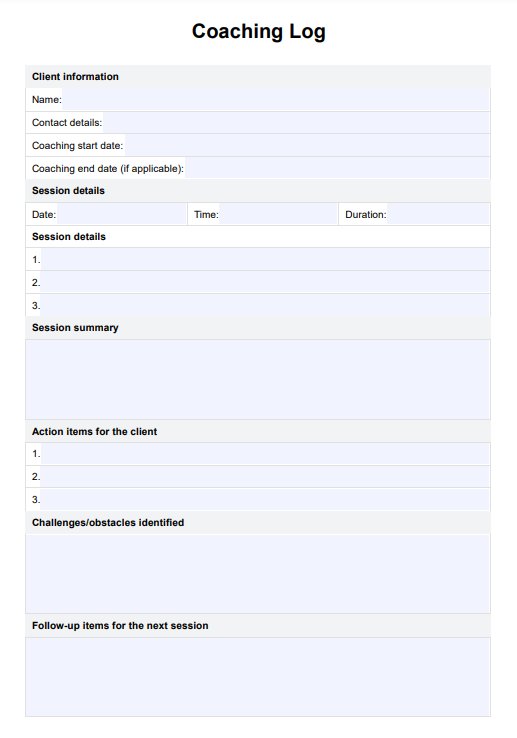A Coaching Log is a structured tool used by coaches to document coaching sessions, track client progress, and record various coaching-related activities. It serves as a comprehensive record that helps coaches reflect on past sessions, identify patterns, and make informed decisions to enhance the coaching experience.

Coaching Log
Track your client's journey and achieve optimal outcomes with our Coaching Log Template.
Use Template
Coaching Log Template
Commonly asked questions
Coaches from various domains, including life coaches, career coaches, executive coaches, sports coaches, and wellness coaches, use the Coaching Log to effectively track coaching sessions and client progress.
To keep track of coaching hours, coaches can maintain a detailed log that includes the date, duration, and purpose of each session. This log can be organized in various formats, such as spreadsheets or digital applications, allowing for easy access and updates.
EHR and practice management software
Get started for free
*No credit card required
Free
$0/usd
Unlimited clients
Telehealth
1GB of storage
Client portal text
Automated billing and online payments











